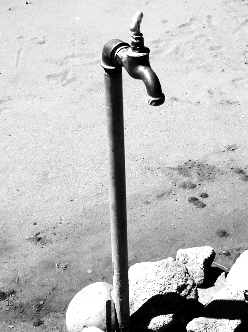Report finds drought waste
 The Productivity Commission says the middle of a drought is the worst time to make drought policy.
The Productivity Commission says the middle of a drought is the worst time to make drought policy.
The independent agency has urged the federal government to undertake a comprehensive, “sober review” of farmers’ drought assistance – as soon as once the weather improves.
The last time drought support was reviewed was a decade ago, and the commission says little has changed since then, or rather, things changed and then changed back.
“The basic thrust of the recommendations was to design drought assistance policy in a way that builds the resilience of farmers and farming communities,” Commissioner Jonathan Coppel told reporters.
He says trying to reform and refine such policies during a period of natural disaster promotes short-term thinking and unintended consequences.
“Often when you're in a state of emergency, in a period of drought or there might be a flood or some other form of natural disaster, you're preoccupied with response rather than thinking in terms of prevention or preparedness,” Mr Coppel said.
“It's possible ... some of the measures that are taken in reaction to a natural disaster may bear on the longer-term sustainability of farming families.”
The Productivity Commission's annual trade assistance review says current aid measures for farmers are similar to those that the commission criticised in 2009.
It said they do not help self-reliance, preparedness or climate change management.
“Indeed, the expectation of government support acted like implicit insurance (without requiring a premium) and potentially altered the behaviour of some farmers,” the review states.
In 2009, the government cut an interest rate subsidy that the commission criticised, but new government-funded loan schemes for farmers now take their place.
Some hardship payments were also cut after the 2009 review, but the current drought has seen new farming household allowance extended to include cash grants.
“As the commission explained in its drought inquiry, such measures reduce the incentives for farmers to manage their properties well over climatic cycles and may also reduce the incentives to de-stock during periods of drought,” the report states.








 Print
Print